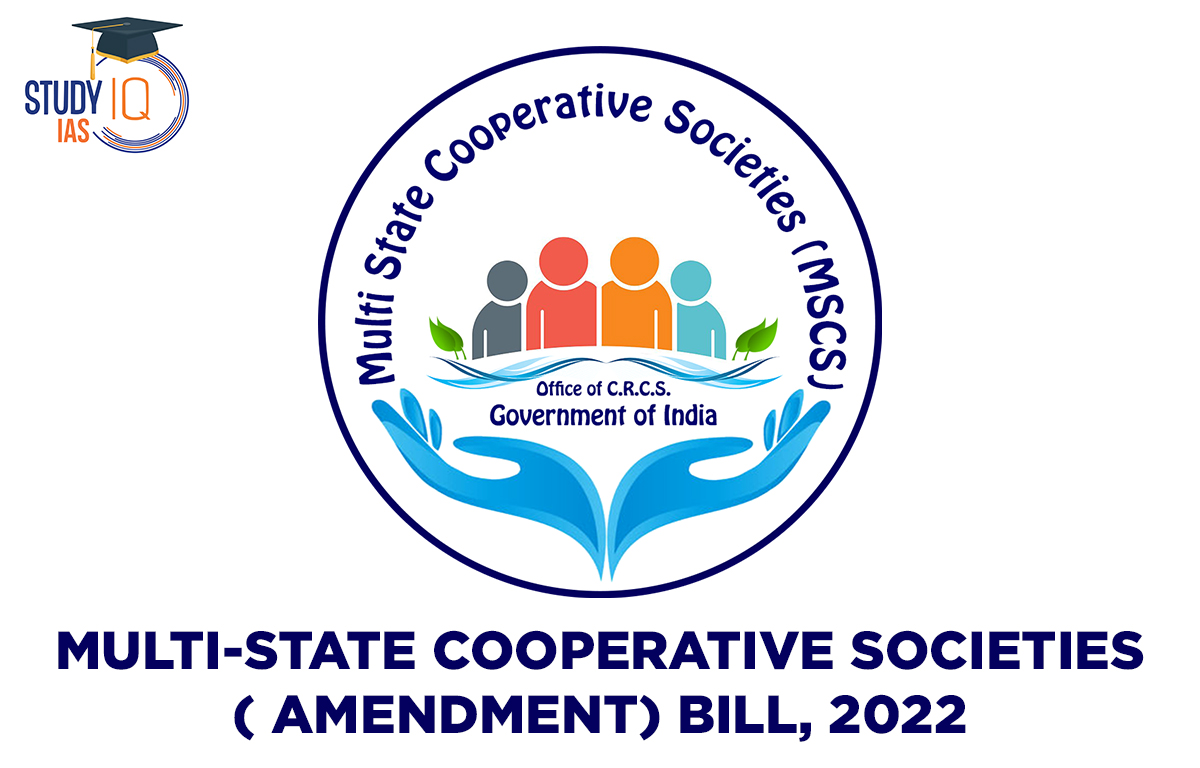Table of Contents
What are Cooperative Societies?
A co-operative society is a voluntary association of individuals having common needs who join hands for the achievement of common economic interest.
Its aim is to serve the interest of the poorer sections of society through the principle of self-help and mutual help.
Examples of Successful Cooperatives in India: National Agricultural Cooperative Marketing Federation of India (NAFED), Indian Farmers Fertilizers Cooperative Limited (IFFCO), and AMUL.
The item “Cooperative Societies” is a State Subject in the 7th Schedule via entry 32 of the State List in the Constitution of India.
97th Constitutional Amendment Act 2011:
- It established the right to form cooperative societies as a fundamental right (Article 19).
- It included a new Directive Principle of State Policy on the Promotion of Cooperative Societies (Article 43-B).
- It added a new Part IX-B to the Constitution titled “The Co-operative Societies” (Articles 243-ZH to 243-ZT).
- It authorizes the Parliament to establish relevant laws in the case of multi-state cooperative societies (MSCS) and state legislatures in the case of other cooperative societies.
Ministry of Cooperation: The Union Ministry of Cooperation was formed in 2021, its mandate was looked after by the Ministry of Agriculture before.
Multi-State Cooperative Societies (MSCS)
Multi-State cooperatives are societies that have operations in more than one state– for instance, a farmer-producers organization which procures grains from farmers from multiple States.
Such MSCSs are registered under the Multi-State Co-operative Societies Act 2002, and their regulation lies with the Central Registrar.
Stats IQ
According to the Ministry of Cooperation, there are around 8.5 lakh cooperatives in India, with about 1.3 crore people directly attached to them.
As per NCUI data from 2018, the percentage of cooperative members in proportion to the total population increased from 3.8% in 1950-51 to 22.2% in 2016-17.
There are close to 1,500 MSCSs registered in India, the highest number being in Maharashtra.
A large number of MSCSs are credit societies, while agro-based societies, dairies and banks are also sizeable in number.
Highlights of Multi-State Cooperative Societies (Amendment) Bill 2022
|
About |
The bill amends the Multi-State Cooperative Societies (MSCS) Act, 2002. | ||||
|
Objectives of the Bill |
|
||||
|
Election of Board Members |
|
||||
|
Cooperative Ombudsman |
As per the Bill, the central government will appoint one or more Co-operative Ombudsman to inquire into complaints made by members of co-operative societies. | ||||
|
Cooperative information Officer |
The bill proposes to make provisions for the “appointment of cooperative information officer” to provide information on affairs and management of the multi-state co-op society concerned to members of such society. | ||||
|
Merging of Cooperative Societies |
|
||||
|
Fund for Sick Co-Operative Societies |
The Bill establishes the Co-operative Rehabilitation, Reconstruction and Development Fund for revival of sick multi-state co-operative societies. | ||||
|
Equity and Inclusiveness |
To promote equity and inclusiveness, provisions relating to the representation of women and Scheduled Caste/Scheduled Tribe members on MSCS boards have been included in the Amendment Bill. | ||||
|
Increasing Penalties |
The Bill also increases the penalty amount for violation of the law to Rs. 1 lakh and potential imprisonment from six months to a year. |


 Serious Fraud Investigation Office (SFIO...
Serious Fraud Investigation Office (SFIO...
 Article 142 of Indian Constitution, Sign...
Article 142 of Indian Constitution, Sign...
 Pakistan-Occupied Kashmir (PoK): History...
Pakistan-Occupied Kashmir (PoK): History...





















